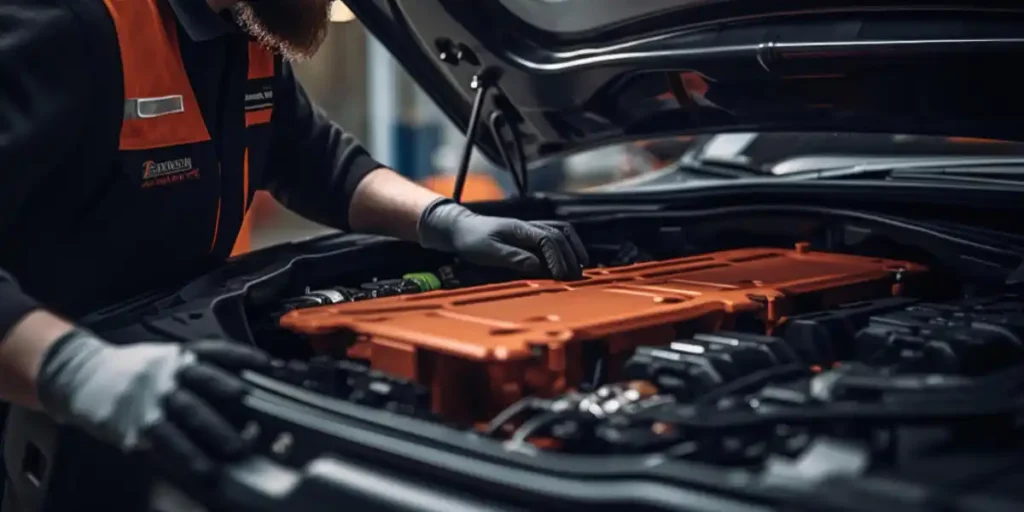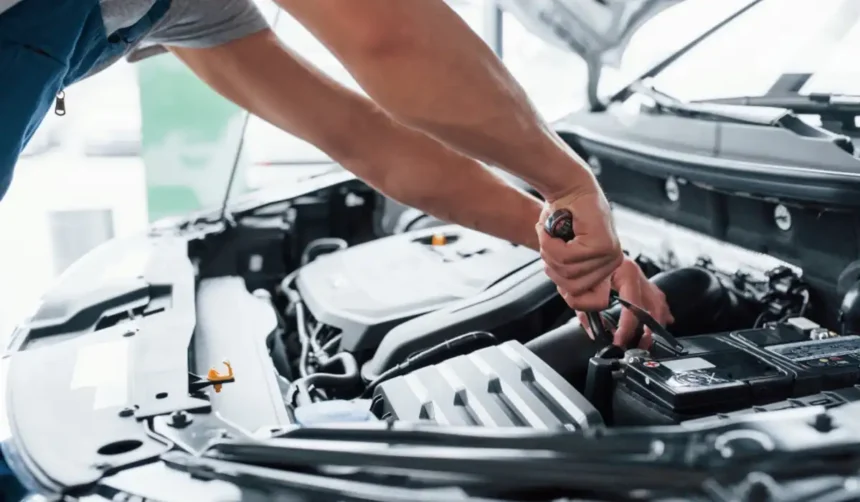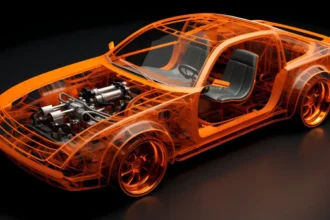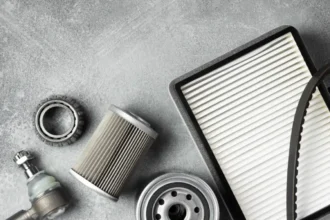Car Battery : Have you ever experienced the frustration of turning the key in your car only to hear the dreaded click of a dead battery? Or perhaps you’re wondering how to prevent that scenario from happening in the first place? A healthy car battery is essential to keep your vehicle running smoothly, and the good news is that with regular maintenance, you can extend its lifespan significantly.
In this article, we’ll break down the steps and tips to keep your car battery healthy and ensure your vehicle starts reliably every time.
Why Is Car Battery Maintenance So Important?
Your car’s battery powers every electrical component in the vehicle, from the engine starter to the lights, radio, and air conditioning. Without it, your car simply won’t function. Over time, car batteries degrade, but proper maintenance can significantly extend their lifespan, saving you from the inconvenience and cost of a sudden battery failure.
Now, let’s dive into the key aspects of keeping your car battery healthy.
Essential Tips to Keep Your Car Battery Healthy

1. Check the Battery's Charge Regularly
Why It’s Important:
- The battery’s charge level affects its overall health and ability to power your vehicle. Keeping it charged prevents sulfation, a process where lead sulfate crystals form on the battery plates, reducing its effectiveness.
How to Do It:
- Use a multimeter or a dedicated battery tester to check the voltage. A healthy car battery should read between 12.4 and 12.7 volts when fully charged.
- Check the charge every few months, or more frequently in colder climates or if your car has been sitting idle.
Pro Tip: If your car is in storage for an extended period, consider using a trickle charger to maintain the battery’s charge.
2. Keep the Battery Clean
Why It’s Important:
- Over time, dirt, grease, and corrosion can accumulate on the battery terminals, hindering proper electrical connections and reducing the battery’s efficiency.
How to Do It:
- Inspect the battery terminals and clean them if you notice any white, ashy corrosion. Use a mixture of baking soda and water with a stiff brush to scrub the terminals clean.
- After cleaning, dry the terminals and apply a thin layer of petroleum jelly to prevent future corrosion.
Pro Tip: Regularly checking for corrosion is especially important in colder climates where salt from roads can accelerate rusting and battery deterioration.
3. Avoid Short Drives
Why It’s Important:
- Short trips don’t allow the alternator to fully recharge the battery, causing it to lose its charge faster. Over time, this can lead to a weakened battery and shorter lifespan.
How to Do It:
- Aim for at least one long drive (30 minutes or more) each week to keep the battery charged.
- If you mainly drive short distances, consider charging the battery manually with a charger every month.
Pro Tip: Combining errands into one trip not only saves fuel but also helps maintain a healthy battery by giving it enough time to recharge.
4. Check the Battery’s Water Level
Why It’s Important:
- Some car batteries are not sealed and require you to check and maintain the water level inside the cells. Low water levels can cause the battery to overheat and lose efficiency.
How to Do It:
- If your battery is not maintenance-free, you’ll need to open the battery caps and ensure the water level covers the lead plates inside.
- Only use distilled water to top off the battery; tap water contains minerals that can damage the battery.
Pro Tip: Be cautious when working with battery acid. Always wear protective gloves and glasses, and avoid overfilling.
5. Limit Power Usage When the Engine is Off
Why It’s Important:
- Using electrical components like the radio, lights, or charging devices when the engine is off can quickly drain your battery. Over time, this can reduce its charge capacity.
How to Do It:
- Avoid leaving lights, air conditioning, or accessories running when the engine is off.
- If you need to use the car’s electronics for an extended period, start the engine occasionally to recharge the battery.
Pro Tip: Install a voltage meter in your car to keep track of the battery’s charge when using accessories without running the engine.
Common Causes of Battery Failure
Even with proper maintenance, certain factors can cause your battery to fail prematurely. Here are some of the most common culprits:
- Extreme Temperatures: Both hot and cold weather can impact battery performance. Heat accelerates fluid evaporation inside the battery, while cold temperatures can make it harder for the battery to generate power.
- Loose or Faulty Connections: A loose battery connection can reduce charging efficiency and cause the battery to drain more quickly.
- Old Age: Car batteries typically last between 3 to 5 years, depending on usage and maintenance. An older battery is more prone to failure.
Car Battery Maintenance at a Glance
| Maintenance Task | Frequency | Why It’s Important |
|---|---|---|
| Check charge with a multimeter | Every 3 months | Ensures battery is holding a proper charge |
| Clean terminals for corrosion | Every 6 months | Prevents poor electrical connections and improves health |
| Check water levels (if applicable) | Every 6 months | Avoids overheating and prolongs battery life |
| Avoid short trips | Regularly | Keeps battery charged efficiently |
| Limit power usage when engine off | Regularly | Prevents draining the battery when not recharging |
Conclusion
Keeping your car battery healthy doesn’t require a lot of effort, but it does require consistent attention. By following these tips—checking the charge, cleaning the terminals, avoiding short drives, and limiting power use—you can extend the life of your car battery and avoid unexpected breakdowns.
Remember, a healthy car battery is the key to a reliable vehicle, and with regular maintenance, you can ensure that it continues to perform at its best. Whether you’re driving in extreme weather or just cruising around town, keeping your battery in top shape will save you time, money, and hassle in the long run.
So, the next time you think about car maintenance, don’t forget to take care of your battery. A little effort now can prevent major headaches down the road!








